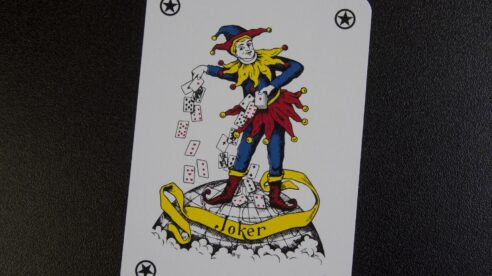When working in social media and public relations, nothing brings you joy quite like a national holiday. It’s a simple content generator that allows you to reinforce messaging, celebrate and interact with your followers. And lucky for us, there’s almost a holiday for every possible occasion.
Some are serious like the National Day of Silence. Some are silly like National Talk Like Shakespeare Day, and others are downright strange like National Sneak Some Zucchini Into Your Neighbor’s Porch Day.
Regardless, knowing when to acknowledge holidays and when to stay out of the conversation is an important skill for communicators to have. Which brings us to April Fool’s Day and the urge every year for companies to try some sort of stunt.
From social media mishaps to media relations mix ups, playing a prank can do some damage. It’s all fun and games until your brand reputation gets hurt.
Check out a few of April Fool’s Day pranks throughout the years that didn’t quite go as planned:
Google’s Major Goof
Google is no stranger to using April Fool’s Day to release fake products and services, but in 2016, it took the joke too far with a prank that was despicable if you ask me ? Google decided to give Gmail a new feature overnight that allowed users to send a Minion “mic drop” gif along with their emails. But there was one minion-sized problem, they added the “mic drop” option in the same spot where users are familiar with hitting send. The company’s prank didn’t get many laughs from bosses, clients and others users who weren’t in the mic-dropping mood.
Franklin Institute Causes Chaos
If you need a reminder that April Fool’s day pranks have been causing chaos for a long time, then look no further than an on-air announcement from the Franklin Institute in Philadelphia in 1940. As a fun way to promote its new planetarium show on cosmic apocalypses, the Franklin Institute used radio to announce that the end of the world was near, 3 p.m. on April 1, 1940 to be exact. The message caught listeners by surprise and caused panic in Philadelphia leaving emergency officials fielding swarms of calls from terrified citizens. In the end, the prank ended up costing the Franklin Institute’s press agent his job.

Voltswagen Prank Short Circuits
Just this week, Volkswagen decided to run with a prank ahead of April Fool’s Day that didn’t generate the response it was hoping. The company issued a press release that declared it had changed the name of its U.S. subsidiary to “Voltswagen of America” in attempts to promote the brand’s new electric vehicle. Despite skepticism from reporters, many major outlets like USA Today, CNBC, The Washington Post and The Associated Press all reported on the news after being repeatedly assured by Volkswagen officials that the name change was legitimate.
Although the fake news briefly caused Volkswagen’s stock prices to rise and the product itself is real, the damage to their relationships with reporters has been done. Volkswagen’s prank has hurt the company’s credibility by purposefully deceiving journalist during a time when misinformation runs rampant online.
Don’t put your relationships, credibility or job at risk this year. Steer clear of April Fool’s Day, because there will be plenty more holidays for your brand to celebrate soon. After all, National Unicorn Day is just around the corner.


